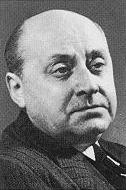Dr. Gottfried Benn (Gottfried Benn)

Gottfried Benn was born in a Lutheran country parsonage, a few hours from Berlin, the son and grandson of pastors in Mansfeld, now part of Putlitz in the district of Prignitz, Brandenburg. He was educated in Sellin in the Neumark and Frankfurt an der Oder. To please his father, he studied theology at the University of Marburg and military medicine at the Kaiser Wilhelm Academy in Berlin. After being laid off as a military doctor in 1912, Benn turned to pathology, where he dissected over 200 bodies between October 1912 and November 1913 in Berlin. Many of his literary works reflect on his time as a pathologist. Gottfried Benn’s poetry projects an introverted nihilism, that is, an existentialist outlook that views artistic expression as the only purposeful action. In his early poems Benn used his medical experience, often using medical terminology, to portray humanity morbidly as just another species of disease-ridden animal. After the outbreak of World War I he enlisted in 1914, and spent a brief period on the Belgian front, then served as a military doctor in Brussels. Benn attended the trial and execution of Nurse Edith Cavell. He also worked as a physician in an army brothel. After the war, he returned to Berlin and practiced as a dermatologist and venereal disease specialist. During the 1920s he had a close relationship with Jewish poet Else Lasker-Schüler who addressed love poems to him. This bond to her is the subject of the film Mein Herz-niemandem (1997) by Helma Sanders-Brahms.
Hostile to the Weimar Republic, and rejecting Marxism and Americanism, Gottfried Benn, like many Germans, was upset with ongoing economic and political instability, and sympathized for a short period with the Nazis as a revolutionary force. He hoped that National Socialism would exalt his aesthetics and that expressionism would become the official art of Germany, as Futurism had in Italy. Benn was elected to the poetry section of the Prussian Academy in 1932 and appointed head of that section in February 1933. In May he defended the new regime in a radio broadcast, saying “the German workers are better off than ever before.” He later signed the Gelöbnis treuester Gefolgschaft, that is, the “vow of most faithful allegiance” to Adolf Hitler. The cultural policy of the new State didn’t turn out the way he hoped, and in June Hans Friederich Blunck replaced Benn as head of the Academy’s poetry section. Appalled by the Night of the Long Knives, Benn turned away from the Nazis. He lived quietly, refraining from public criticism of the Nazi party, but wrote that the bad conditions of the system “gave me the latter punch” and stated in a letter that the developments presented a “dreadful tragedy!” He decided to perform “the aristocratic form of emigration” and joined the Wehrmacht in 1935, where he found many officers sympathetic to his disapproval of the régime. In May 1936 the SS magazine Das Schwarze Korps attacked his expressionist and experimental poetry as degenerate, Jewish, and homosexual. In the summer of 1937, Wolfgang Willrich, a member of the SS, lampooned Benn in his book Säuberung des Kunsttempels; Heinrich Himmler, however, stepped in to reprimand Willrich and defended Benn on the grounds of his good record since 1933 (his earlier artistic output being irrelevant). In 1938 the Reichsschrifttumskammer (the National Socialist authors’ association) banned Benn from further writing. During World War II, Gottfried Benn was posted to garrisons in eastern Germany where he wrote poems and essays. After the war, his work was banned by the Allies because of his initial support for Hitler. In 1951 he was awarded the Georg Büchner Prize. He died of cancer in West Berlin in 1956, and was buried in Waldfriedhof Dahlem, Berlin.
Born
- May, 02, 1886
- Putlitz, Germany
Died
- July, 07, 1956
- Berlin, Germany
Cause of Death
- cancer
Cemetery
- Waldfriedhof Dahlem am Hüttenweg
- Berlin
- Germany



